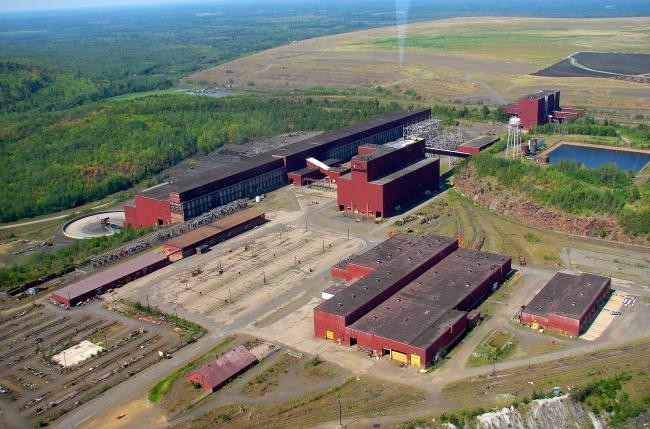Support the Timberjay by making a donation.
Supreme Court to review PolyMet permit decision
REGIONAL— Minnesota’s highest court has agreed to review an appeals court decision from last January that determined that the Minnesota Pollution Control Agency did not …
This item is available in full to subscribers.
Attention subscribers
To continue reading, you will need to either log in to your subscriber account, or purchase a new subscription.
If you are a current print subscriber, you can set up a free website account and connect your subscription to it by clicking here.
If you are a digital subscriber with an active, online-only subscription then you already have an account here. Just reset your password if you've not yet logged in to your account on this new site.
Otherwise, click here to view your options for subscribing.
Please log in to continue |
Supreme Court to review PolyMet permit decision
REGIONAL— Minnesota’s highest court has agreed to review an appeals court decision from last January that determined that the Minnesota Pollution Control Agency did not violate the law when it asked federal regulators to hold off on issuing written comments about a permit for the proposed PolyMet copper-nickel mine near Hoyt Lakes.
The Minnesota Center for Environmental Advocacy, Water Legacy, and the Fond du Lac Band had asked the Supreme Court to take a second look at the appellate ruling, which had provided a mixed verdict on PolyMet’s water discharge permit. Environmental plaintiffs had argued that the MPCA’s efforts to discourage the Environmental Protection Agency from issuing written comments on PolyMet’s draft water discharge permit was an intentional effort to avoid negative publicity and to keep critical comments out of the administrative record. Lower courts had agreed that the MPCA had sought to avoid public scrutiny surrounding the issuance of the permit and concerns that the EPA had expressed about its compliance with the Clean Water Act. Yet, the lower courts had determined that the MPCA had not broken any law and, therefore, its actions did not constitute a procedural irregularity that could lead to reversal of a permit.
In seeking Supreme Court review, the environmental plaintiffs were joined by several “friends of the court,” including by the federal union that represents EPA workers, two Minnesota-based administrative law judges, the Minnesota Center on Government Information, and a Minnesota well owners association.
“Minnesotans were shocked to learn that our state agencies suppressed EPA employees’ concerns about the water pollution permit issued to PolyMet and kept them out of the public record,” said MCEA CEO Kathryn Hoffman. “At the Minnesota Supreme Court, MCEA will make the case that these violations of Minnesota law and rules resulted in a fatally flawed permit that doesn’t protect our water or the people downstream.”
In addition to a review of the lower court ruling on the MPCA’s actions regarding EPA comments, the high court will consider whether the lower court erred when it determined that the PolyMet permit did not require water-quality based effluent limits.
The high court review will not include a second look at several other issues addressed in the earlier Court of Appeals ruling, issued in January. That includes the appellate court’s requirement that the MPCA assess whether the company’s anticipated discharges to groundwater could meet the definition of a surface discharge under the standard set the U.S. Supreme Court in the 2020 case of County of Maui v. Hawaii Wildlife Fund. The MPCA had declined to establish water quality standards in the PolyMet permit for groundwater discharges, believing that they were not required. But the U.S. Supreme Court ruling established the precedent that groundwater discharges may be subject to the Clean Water Act’s provisions if they are the functional equivalent of surface discharges. The appellate court had sent the matter back to the MPCA to make such a determination.
The state Supreme Court has not yet set a date for oral arguments.






